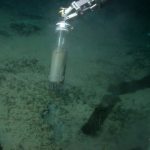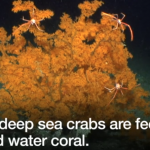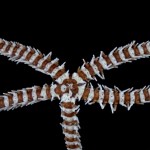Source: Science Daily
Author: Max Planck Institute for Marine Microbiology
Large quantities of the greenhouse gas methane are stored in the seabed. Fortunately, only a small fraction of the methane reaches the atmosphere, where it acts as a climate-relevant gas, as it is largely degraded within the sediment. This degradation is carried out by a specialized community of microbes, which removes up to 90 percent of the escaping methane. Thus, these microbes are referred to as the “microbial methane filter.” If the greenhouse gas were to rise through the water and into the atmosphere, it could have a significant impact on our climate.
Continue reading Observing the development of a deep-sea greenhouse gas filter








